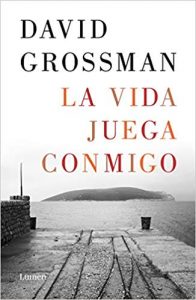When David Grossman warns us that life plays with him, we can go assuming that at the end of this book we also discover how life plays with us.
Because Grossman narrates (although in this case in the mouth of little Guili), from that internal forum that lives between the visceral and the spiritual; with the strange mixture of aromas of the most mundane with the most transcendental, in an essential and common amniotic fluid of our social habitat.
And that is what it is about when we look for an intense narrator, one of the great chroniclers who are giving testimony of the times we have lived. In Grossman we look for answers or at least tight circumlocutions that end up constricting the truths until they bleed.
The point is to do it with grace, contextualizing everything in a story. And this time we enter the nucleus of a polyhedral family, with its protagonists located in their particular vertices to compose an irregular figure, unbalanced by the lived and the silent, by the remote past in Yugoslavia that was like perfect cyclogenesis where it was they focused on the penultimate hurricanes of a Europe always conspiring to destroy itself.
Guili may not know especially what he is telling us about the family reunion led by his mother, Nina, whom he hardly sees. And yet we can decipher everything from his story. Because Guili ends up writing what the protagonists' mouths are silent.
Synopsis: «Tuvya Bruk was my grandfather. Vera is my grandmother. Rafael, Rafi, Erre, is, as you know, my father, and Nina… Nina is not here. He's not here, Nina. But that was always his most exclusive contribution to the family ", notes Guili, the narrator of Life plays with me, in his notebook.
But on the occasion of Vera's XNUMXth birthday party, Nina returns: she has taken three planes that have taken her from the Arctic to the kibbutz to meet her mother, her daughter Guili and the intact veneration of Rafi, the man whom, Much to her regret, her legs still tremble in his presence.
This time, Nina is not running away: she wants her mother to finally tell her what happened in Yugoslavia during the "first part" of her life. At the time, Vera was a young Croatian Jewess madly in love with the son of landless Serbian peasants, Milosh, imprisoned on charges of being a Stalinist spy. Why was Vera deported to the re-education camp on Goli Otok Island and she had to be left alone when she was six years old?
You can now buy the novel "Life plays with me", the book by David Grossman, here:

